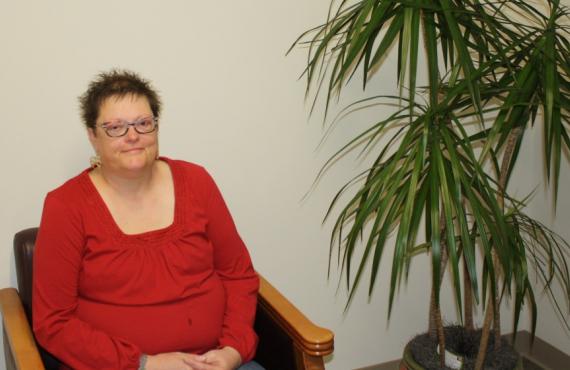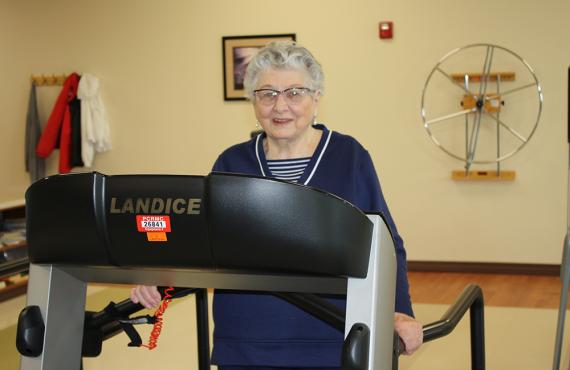Published on June 5, 2023
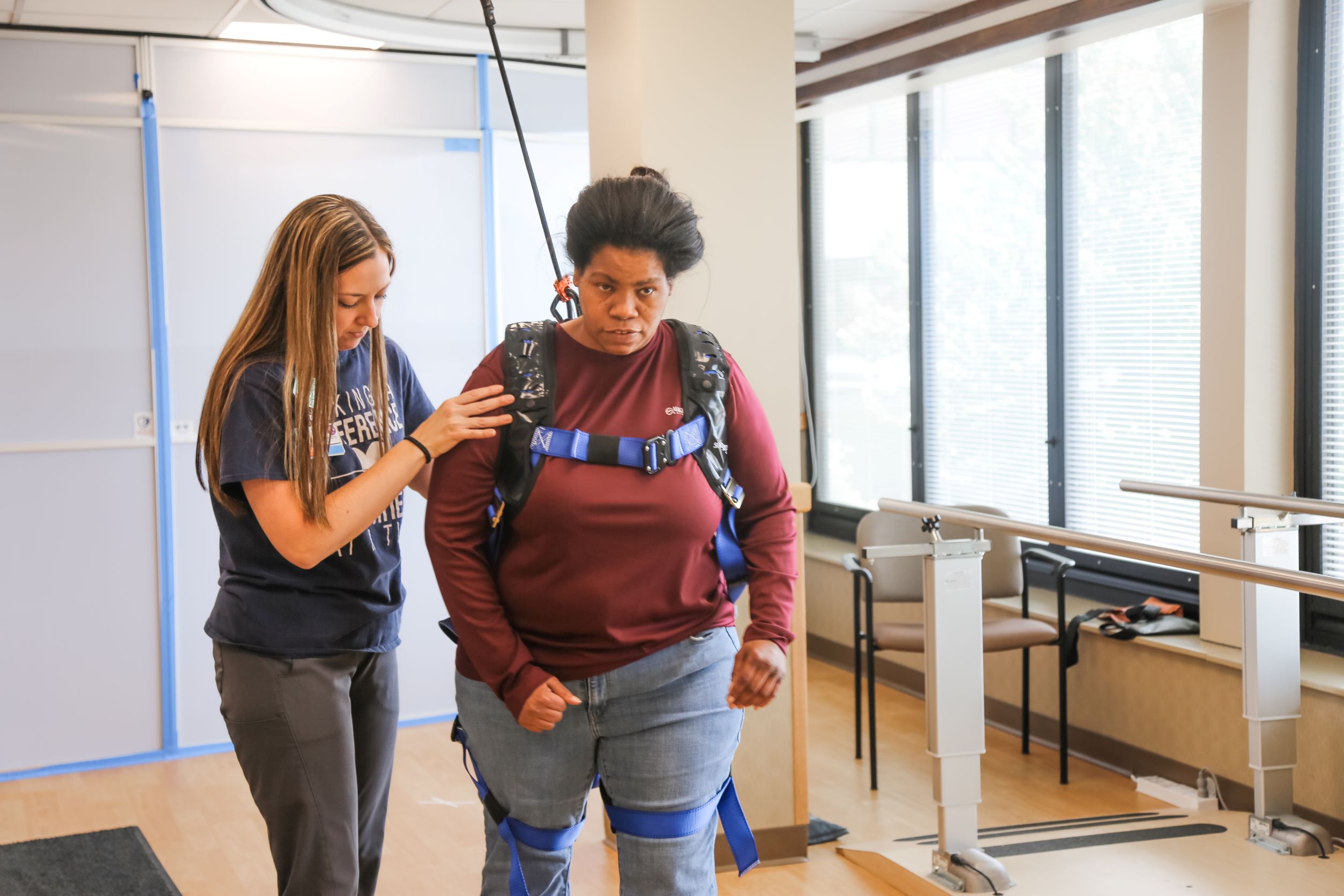
Read Time: 3 Minutes
Three Things to Know
- Phelps Health Acute Rehab Unit prepares patients to return to their homes safely.
- The unit uses a variety of equipment and techniques to help patients recover, including a Solo-Step system, a car simulator, and a mini-suite that resembles a home environment.
- Families are trained on how to support the patient during and after the transition from hospital to home.
At the Phelps Health Acute Rehabilitation Unit, preparing patients to return to their homes safely is the staff’s main goal.
Individuals who have suffered a stroke or spinal cord injury may find themselves in the Acute Rehab Unit at Phelps Health Hospital. Phelps Health partners with LifePoint Health to offer acute rehab services at the hospital.
Physical, occupational and speech therapists help patients recover from their injury or condition and get them back to what matters most.
Occupational Therapist Ginny Weaver and Physical Therapist Kaycee Dukes are two staff members who assist people during their rehabilitation.
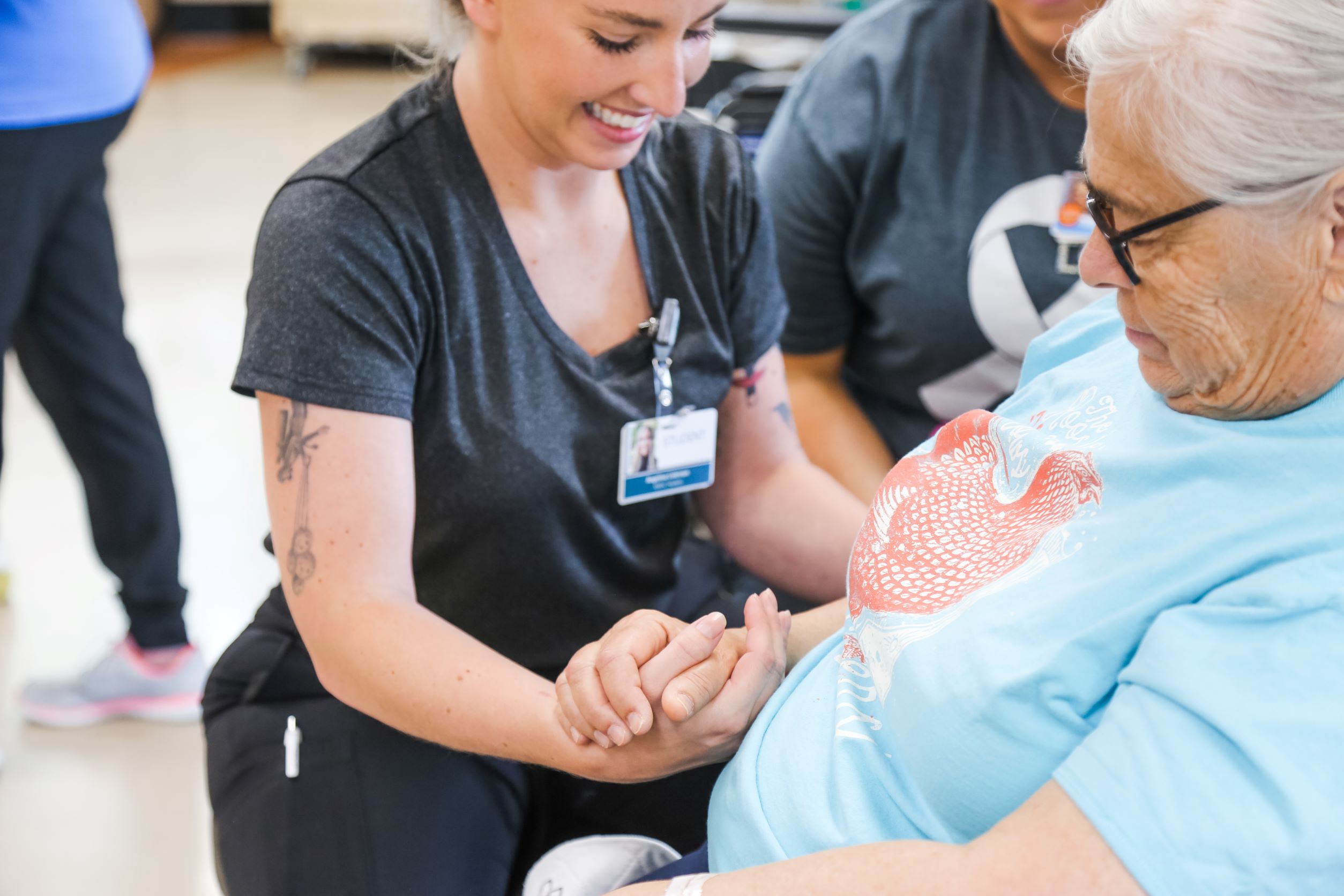
From making sure they can enter and exit a vehicle to ensuring they can complete household chores, patients can feel assured that they’ll be able to do these tasks after they leave the hospital.
“In recovery, the more the body and brain repeat tasks, the more likely the patients will be able to remember to do those tasks,” Ginny said.
By practicing these tasks before they go home, people can build up their confidence, Kaycee added.
A relatively new piece of equipment helps patients learn how to walk again. The Solo-Step system has a harness attached to an overhead track, so that patients can practice walking and stepping over objects. Patients who use the Solo-Step must be able to stand; the harness system cannot lift people.
The Solo-Step is used for patients who have had a stroke, spinal cord injury, or balance or weakness issues. The Solo-Step keeps the patient from falling.
“This system helps free our hands from holding onto the patient, and we can help move their legs,” Kaycee said.
The Acute Rehab Unit also has a car simulator, where patients can practice getting into and out of a vehicle. Medicare and many insurance companies require that patients be able to do this task before discharge. The simulator has a hydraulic system that raises and lowers the height of the car.
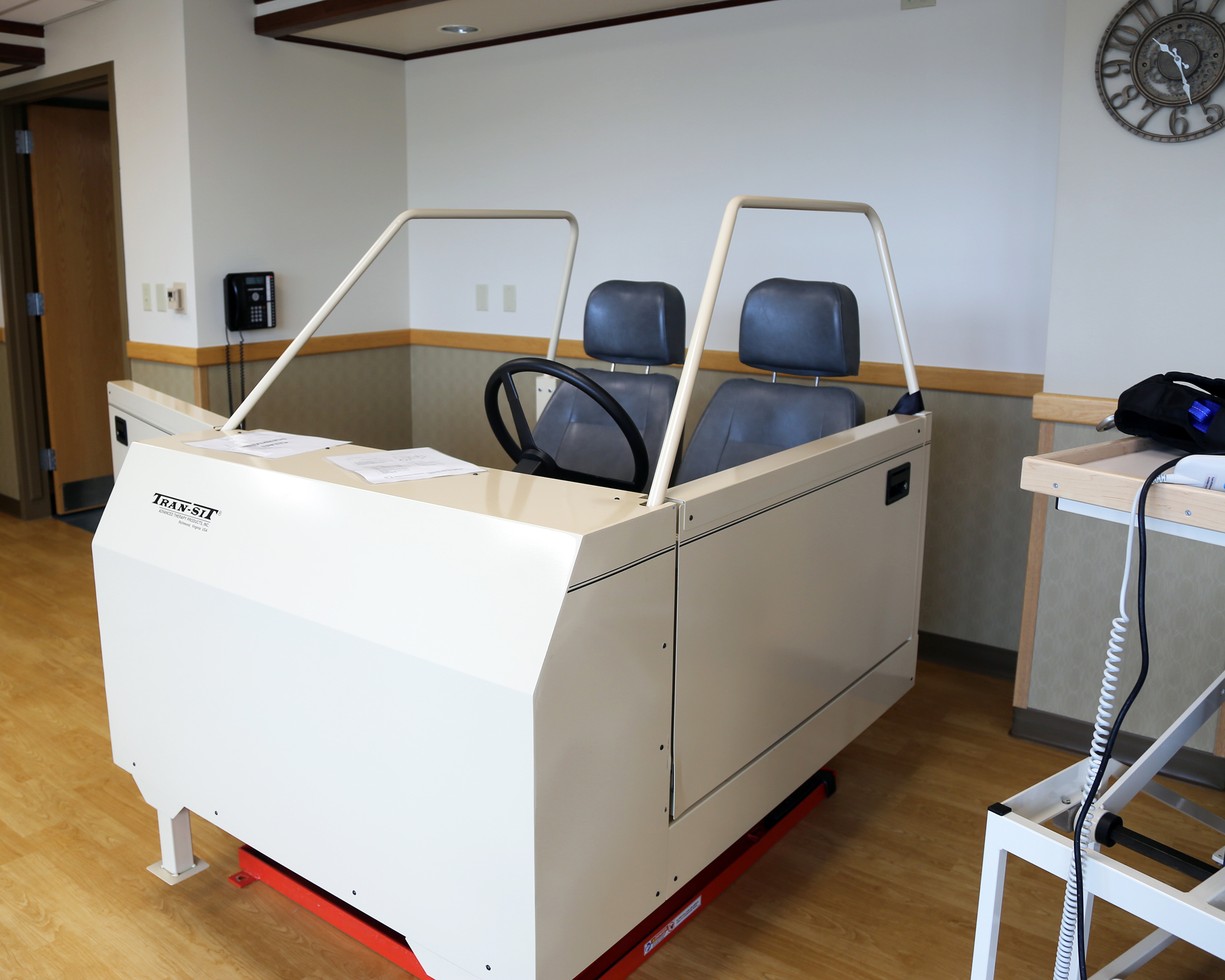
Getting a family member to bring a vehicle to Phelps Health for the patient to practice in can be difficult, so this simulator is beneficial. The therapists said the simulator is used multiple times a day.
The Acute Rehab Unit also has a mini-suite that resembles a home environment, where patients can practice transitioning from a hospital room to a setup similar to their home. Patients can get into and out of a bathtub, practice making meals in a kitchenette and simulate laundry with a washer and dryer.
At Phelps Health, families are trained on how they can support the patient. About 5 to 7 days before discharge, families are invited to learn how to keep their loved one safe during and after the transition from hospital to home.
Family members and patients must demonstrate tasks multiple times to ensure they are confident in their abilities. Patients and families also can discuss any possible barriers they might encounter in their homes.
Patients in the Acute Rehab program receive therapy for 3 hours per day, 5 days a week. The average stay of patients at the Phelps Health Acute Rehab Unit is about 10-14 days.
The Phelps Health Acute Rehab Unit is the only acute rehab therapy program offered within a 60-mile radius of Rolla, Missouri.
Return Home Safely With Acute Rehab
At the Phelps Health Acute Rehabilitation Unit, preparing patients to return to their homes safely is the main goal of staff. Learn more about rehab services offered by calling (573) 458-7885.
